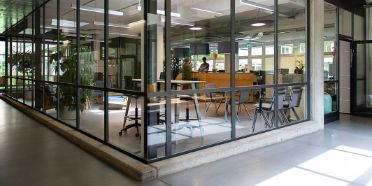Areas of study
Our Master of Science in Business Information Technology prepares you to be an active driver of digital change in your organisation. You will develop and design digital business models, manage complex IT structures and acquire expertise in the fields of business intelligence and big data.
What you stand to gain from this degree programme
On completing our Master of Science in Business Information Technology, you will be in a position to build an agile, process-oriented business organisation, take a methodical approach to introducing complex programs and projects and use IT architectures and digital business models to create a sustainable business structure.
Our cooperation with HSLU (Lucerne University of Applied Sciences and Arts), OST (Eastern Switzerland University of Applied Sciences) and FFHS (Swiss Distance University of Applied Sciences) means you will benefit from a wealth of different strengths and specialisations within the Swiss university landscape.
The profiles
Tailor your degree course to your interests.
If your educational background is in a closely related field (e.g. Bachelor’s in Business Information Technology, Computer Science or Industrial Engineering and Management Science), you can select one of the industry profiles. If your educational background is more distantly related (e.g. Bachelor’s in Business Administration), you can choose to acquire additional skills in the field of business information technology. The modules you take will be decided on during your admission interview.












